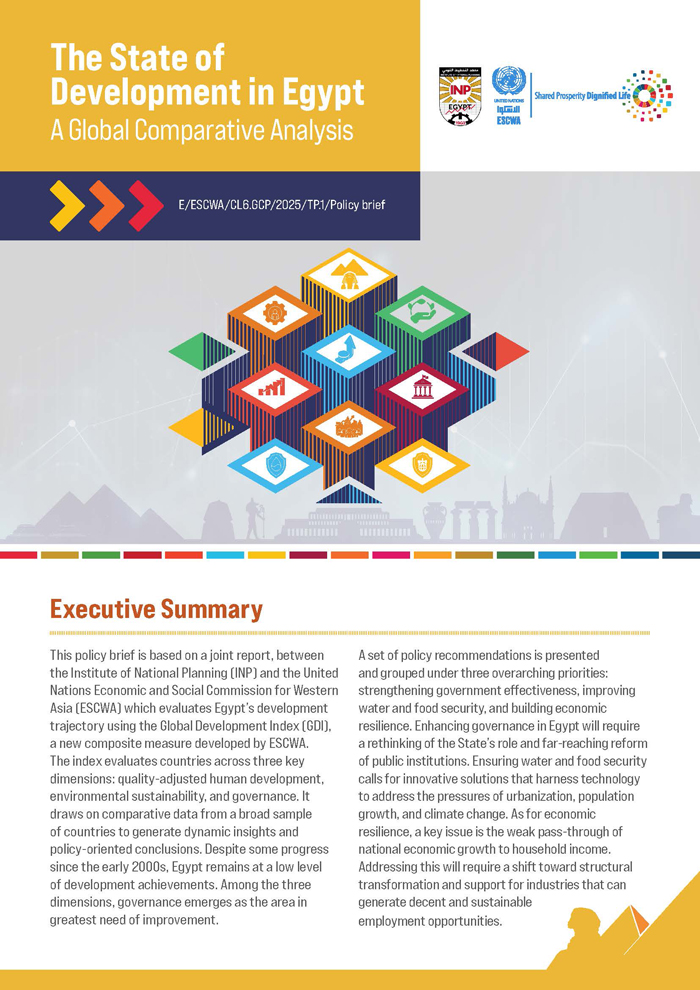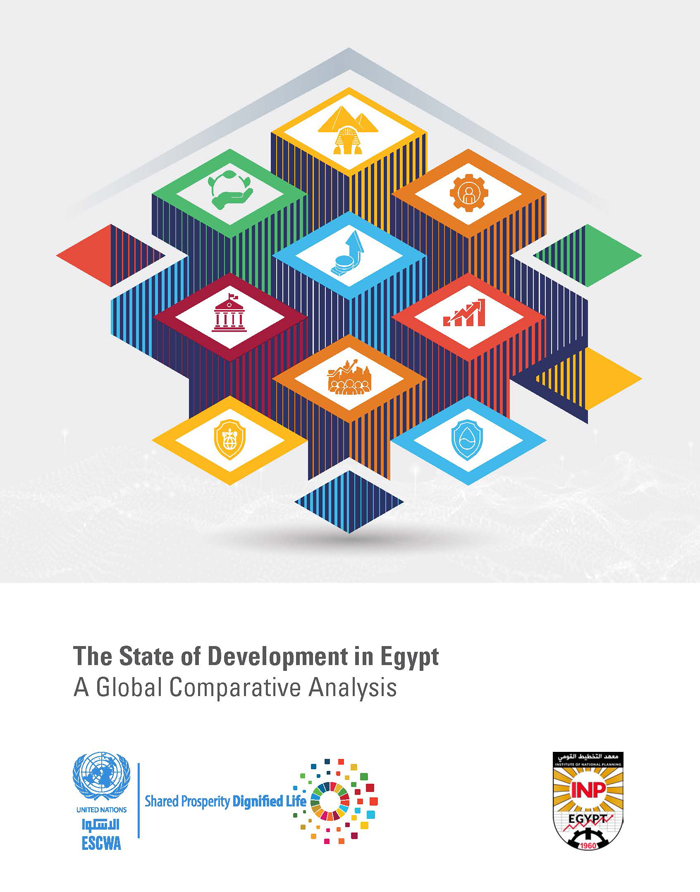
ESCWA Publication: E/ESCWA/CL6.GCP/2023/TC.1
Country: State of Palestine
Publication Type: Information material
Cluster: Governance and Conflict Prevention
Focus Area: Governance & enabling environment, Resilient development & conflict prevention
Initiatives: Development challenges, Enhancing integrated national development planning, Governance and institution building, Support to the Palestinian people, Supporting Least Developed Countries
SDGs: Goal 8: Decent Work and Economic Growth, Goal 16: Peace, Justice and Strong Institutions
Keywords: Appointment of officials, Civil service, Job classification, Job description, Manuals, Occupational qualifications, Human resources, Performance appraisal, Public administration, Public sector, State of palestine, Top state officials
Proposed job competency framework implementation guide for senior public servants: State of Palestine
October 2024
Based on the outcomes of two workshops organized by the United Nations Economic and Social Commission for Western Asia (ESCWA), a common Arab regional job competencies framework for senior public servants within the context of Agenda 2030 and public policy was developed. At a seminar to launch the framework, held in December 2020, participants made the following key recommendations to ESCWA: prepare a detailed matrix of leadership positions and their functional levels; explain the requirements of competencies and what they include in terms of knowledge, skills and behaviour; develop techniques and tools to measure competencies; provide support to the Arab team on functional competencies; and continue efforts to review and develop the framework and follow up on its implementation mechanisms.
In accordance with these recommendations, ESCWA, in collaboration with experts from the General Personnel Council of the State of Palestine, is developing a Palestinian competencies framework for senior public servants. It is also preparing an implementation guide that includes a glossary, and that identifies realistic indicators for the set of competencies contained in the Arab framework, as well as effective and simple measurement tools that can be easily adapted to the reality and nature of public administration and civil service in each Arab country. Through this guide, ESCWA is primarily introducing the concept of functional competencies in an institutionalized and systematic manner into the public service system, with the aim of achieving an effective public service system that relies on efficiency and experience and secures the public interest.
Related content
Governance & enabling environment
, Resilient development & conflict prevention
,
Based on the outcomes of two workshops organized by the United Nations Economic and Social Commission for Western Asia (ESCWA), a common Arab regional job competencies framework for senior public servants within the context of Agenda 2030 and public policy was developed. At a seminar to launch the framework, held in December 2020, participants made the following key recommendations to ESCWA: prepare a detailed matrix of leadership positions and their functional levels; explain the requirements of competencies and what they include in terms of knowledge, skills and behaviour; develop techniques and tools to measure competencies; provide support to the Arab team on functional competencies; and continue efforts to review and develop the framework and follow up on its implementation mechanisms.
In accordance with these recommendations, ESCWA, in collaboration with experts from the General Personnel Council of the State of Palestine, is developing a Palestinian competencies framework for senior public servants. It is also preparing an implementation guide that includes a glossary, and that identifies realistic indicators for the set of competencies contained in the Arab framework, as well as effective and simple measurement tools that can be easily adapted to the reality and nature of public administration and civil service in each Arab country. Through this guide, ESCWA is primarily introducing the concept of functional competencies in an institutionalized and systematic manner into the public service system, with the aim of achieving an effective public service system that relies on efficiency and experience and secures the public interest.



